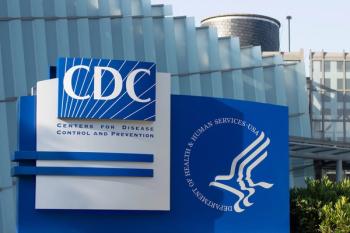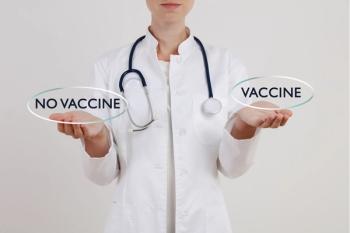
New report suggests pharmacists, not physicians, should administer entire list of adult vaccines
A move to allow pharmacists to administer more vaccines could have a profound effect on adult vaccination rates and vaccine-preventable disease prevalence.
The report points to the nearly 1 million adults who get pneumococcal pneumonia each year-including 400,000 hospitalizations and 19,000 deaths-along with instances of other vaccine-preventable diseases as reason for the suggested change. Less than 64 percent of older Americans are vaccinated against pneumonia, but the target rate is 90 percent of adults aged 65 and up, according to the report. Rates of other adult vaccines are low, as well, the report states. Too low, in fact, to allow herd immunity to offer adequate protection.
"Adult vaccines can improve people's health, but our nation's vaccine rates are unacceptably low. Making vaccines more accessible and less expensive will help reverse this trend," said Wayne Winegarden, PhD, author of the report and a senior fellow in business and economics at Pacific Research Institute. “If the barriers to pharmacists administering vaccines is reduced, ideally the adult vaccination rate for key vaccine preventable diseases will be increased, improving public health, and reducing the number of hospital admissions and death from these diseases.”
Currently, pharmacists are limited in their ability to administer vaccines by varying state laws. A change to federal regulations would allow for a system overhaul and open the doors for pharmacists to do more. "In many states, outdated state laws unjustifiably limit patients' access to vaccinations from providers who may be more convenient and less expensive," Winegarden said. "By reforming the laws, patients can get their next shingles or pneumonia shot at their neighborhood pharmacy.”
Winegarden said that he thinks this reform would increase vaccination rates and allow patients to receive vaccines at their convenience and at a lower cost than a physician’s office or medical center. The report gives an example of the potential cost savings, comparing a shingles vaccination at a cost of $208.72 at a physician office to another for $168.50 at a pharmacy.
Convenience is a huge factor for patients, based on surveys cited in the report, and Winegarden added that he thinks vaccinations administered at pharmacies can also help relieve anxiety patients have about shots.
“Instead of having to make an appointment and have a “shot” looming over for days, pharmacies can reduce the delays between the decision to get a vaccine and actually having the vaccine administered,” Winegarden said.
Winegarden also acknowledged the potential impact of his report to primary care physicians.
“Impacts will obviously vary across primary care physicians. For those practices where the costs of stocking/administering vaccines are too high, increasing vaccine administration at pharmacies would help relieve these burdens,” he said. “More broadly, if the expected impact of increased vaccination rates does come to fruition, there are obvious benefits for patients and overall public health.”
Winegarden said he hopes the report will help clinicians realize that improvements in the regulatory environment can measurably improve health outcomes.
“Not only are inefficient regulations a barrier to improved vaccination rates, which is a very important public health goal, they pervade our healthcare system,” Winegarden said. “While improving the regulatory environment for administering vaccines is an important change, there are many more that must be addressed.”
Newsletter
Stay informed and empowered with Medical Economics enewsletter, delivering expert insights, financial strategies, practice management tips and technology trends — tailored for today’s physicians.






